Diagnostic of Thymus Cancer abroad
Treatment prices are regulated by national law of the corresponding countries, but can also include additional hospital coefficients. In order to receive the individual cost calculation, please send us the request and medical records.

Department of Cardiothoracic Surgery and Vascular Surgery
The Department of Cardiothoracic Surgery and Vascular Surgery provides effective surgical treatment for diseases of the heart, respiratory system, and blood vessels. The team of cardiac surgeons operates on patients with heart valve pathologies, coronary heart disease, heart failure, and heart rhythm disturbances. In the field of thoracic surgery, the key focus is on the surgical removal of lung tumors and lung metastases. The specialists in this area also perform surgery to repair chest wall deformities. In the field of vascular surgery, interventions for abdominal and thoracic aortic aneurysms are most often performed here. The department's vascular surgeons are also exceptionally competent in the treatment of peripheral occlusive arterial disease. A great advantage for the department's patients is that almost all surgical interventions are performed using minimally invasive techniques, so there is no need for a long postoperative recovery. The department's operating rooms are equipped with state-of-the-art technology. This allows for effective and safe treatment. The priority is always personalized medical care for patients.
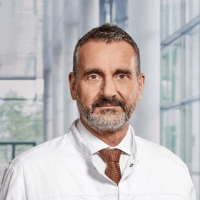





Department of Abdominal and Colorectal Surgery, Hepatobiliary Surgery, Hernia Surgery, Bariatric Surgery, Endocrine Surgery, Thoracic and Vascular Surgery
The Department of Abdominal and Colorectal Surgery, Hepatobiliary Surgery, Hernia Surgery, Bariatric Surgery, Endocrine Surgery, Thoracic and Vascular Surgery offers the full range of services in these medical fields. It provides surgical treatment of diseases of the gastrointestinal tract, thyroid and parathyroid glands, thoracic organs, vascular system, rectum, anus and colon. In addition, the department performs bariatric interventions for the treatment of morbid obesity. A special focus is made on the treatment of gastrointestinal cancer. Minimally invasive surgical techniques are always preferred, if clinically indicated. The team of the department's surgeons has 8 progressive operating rooms equipped with everything necessary for successful treatment. The department also has the da Vinci Xi surgical system for high-precision minimally invasive robot-assisted interventions. The patient's health is in the safe hands of the best German surgeons who have gone through a rigorous selection and have vast clinical experience.





Department of Abdominal, Thoracic and Vascular Surgery
The Department of Abdominal, Thoracic and Vascular Surgery offers all modern surgical interventions in these fields. Specialization covers the treatment of diseases of the abdominal organs, endocrine glands, pathologies of the lungs and chest wall, pathological vascular lesions of all parts of the body. In addition, kidney transplantation and pancreas transplantation are part of the surgeons' tasks. Whenever possible, operations are performed using minimally invasive techniques that have several advantages over classical interventions.
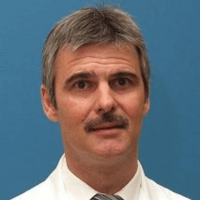





Department of Cardiothoracic Surgery
According to the Focus magazine, the Department of Cardiothoracic Surgery ranks among the top German medical institutions specializing in the surgical treatment of heart diseases! The department offers the full range of first-class medical care for patients with diseases of the heart and thoracic organs that require surgical treatment. The availability in the department of advanced technical base allows for the most sparing treatment and minimally invasive surgery. The main focuses of clinical practice include coronary artery bypass grafting, modern procedures for heart valve reconstruction and replacement, treatment of diseases of the thoracic aorta, as well as treatment of heart failure by implanting an artificial heart.





Department of Adult and Pediatric Cardiothoracic Surgery
According to the Focus magazine, the Department of Adult and Pediatric Cardiothoracic Surgery is included in the ranking of the top German departments specializing in the surgical treatment of cardiovascular diseases! The department offers the full range of treatment of various diseases of the heart, blood vessels, organs of the respiratory system in adults and children. As part of the German Heart Competence Centre Tuebingen, the department is distinguished by the outstanding quality of medical care, competent specialists, as well as high-tech equipment of the latest generation.
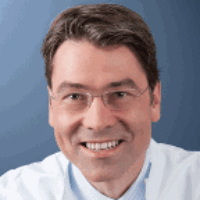





Department of Thoracic Surgery
The Department of Thoracic Surgery offers all types of modern surgical interventions for the treatment of diseases of the lungs, thorax and mediastinal organs. The team of the department's surgeons specializes in operations of any complexity, ranging from minor diagnostic interventional procedures to serious operations using a heart-lung machine. One of the key clinical interests of the department's doctors is lung cancer treatment. The patients with this diagnosis receive interdisciplinary treatment that combines tumor resection, radiation therapy, and chemotherapy. Another area of specialization of the medical facility is laser thoracic surgery, which allows preserving the lung parenchyma, for example, in the treatment of lung metastases. The range of services is complemented by surgical correction of thoracic deformities in adults, for example, pectus excavatum, and minimally invasive endoscopic treatment of hyperhidrosis. In addition, the department's thoracic surgeons have a wealth of experience in innovative video-assisted thoracoscopic surgery.



Department of General, Abdominal and Thoracic Surgery
According to the Focus magazine, the Department of General, Abdominal and Thoracic Surgery ranks among the top German departments specializing in bowel cancer treatment! The department offers the full range of surgical treatment of diseases of the thorax and abdomen, endocrine glands, blood vessels and morbid obesity. If possible, the preference is always given to sparing minimally invasive surgical techniques. The department performs more than 3,000 outpatient and about 2,600 inpatient interventions every year. The department has one of the largest interdisciplinary Obesity Centers, as well as one of three supraregional Centers for Pancreatic, Stomach and Esophageal Surgery.




Department of Adult and Pediatric Cardiothoracic Surgery
According to the Focus magazine, the Department of Adult and Pediatric Cardiothoracic Surgery is included in the ranking of the top departments in Germany specializing in the surgical treatment of diseases of the cardiovascular system! The department offers the surgical treatment of all congenital and acquired heart diseases in adulthood, including heart transplantation, as well as the treatment of respiratory diseases in adults and children. It performs more than 2,000 interventions on the heart and about 600 operations on the lungs every year.





Department of Cardiothoracic Surgery
According to the Focus magazine, the Department of Cardiothoracic Surgery ranks among the top medical facilities in the field of its specialization! The department offers all options of modern surgery for the treatment of diseases of the cardiovascular system and thoracic organs. The department widely uses modern minimally invasive techniques, which are considered the gold standard of surgery. Since its founding in 1976, the department has performed more than 40,000 open heart interventions. The department's surgeons also have vast experience in the field of implantation of the artificial heart and mechanical heart support systems. All operations are carried out in strict accordance with the protocols of professional societies.
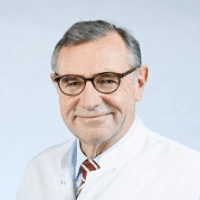






Department of Adult and Pediatric Thoracic Surgery
According to the Focus magazine, the Department of Adult and Pediatric Thoracic Surgery ranks among the top German departments in the treatment of lung cancer! The department offers the full range of diagnostics and treatment of diseases of the thoracic organs. The department is among the largest and oldest medical facilities of this kind in Europe. The doctors of the department mostly have to deal with diseases, such as lung cancer, lung metastases, pleural mesothelioma, sarcoma, myasthenia gravis, pulmonary emphysema, and thoracic defects. More than 2,300 surgical interventions of varying severity are performed here annually. For the achievements in the field of lung cancer treatment, the department received a certificate from the German Cancer Society.





Department of Cardiothoracic Surgery
According to the Focus magazine, the Department of Cardiothoracic Surgery ranks among the top medical facilities of this kind in Germany! The department offers the full range of surgical treatment of diseases of the cardiovascular system and thoracic organs in adults. Of particular interest is sparing minimally invasive surgery, particularly, heart valve interventions and coronary artery bypass grafting. Such interventions are carried out using the innovative da Vinci surgical system. The video-assisted thoracic surgical methods are widely used in the surgical treatment of thoracic diseases as well. All the department's specialists have excellent qualifications and vast clinical experience, which in combination with the cutting-edge technologies allows doctors to achieve the outstanding treatment results.





Department of General, Abdominal, Thoracic and Vascular Surgery
The Department of General, Abdominal, Thoracic and Vascular Surgery offers the full range of diagnostic and treatment services in these fields. The special competence of the department’s specialists lies in the field of surgical treatment of malignant diseases of the esophagus, stomach, intestines, liver, pancreas, lungs, thyroid, adrenal glands and tumor metastases in tissues and organs. The service spectrum is complemented by transplant surgery, namely liver and pancreas transplantations. Key role is played by interdisciplinary collaboration.





University Hospital of Ludwig Maximilian University of Munich
Department of Thoracic Surgery
The Department of Thoracic Surgery offers modern and the most sparing surgical treatment of the full range of diseases of the chest organs. Particular attention is paid to the treatment of malignant tumors of the lungs, pleura, and mediastinum, and lung metastases. The medical facility is certified as a Lung Cancer Center by the German Cancer Society (DKG). Such a quality certificate testifies to the outstanding quality of lung cancer treatment, which belongs to a group of particularly complex malignant diseases. The team of surgeons also has excellent professional skills in treating emphysema, pneumothorax, pleural empyema, and pleurisy. The department performs all surgical interventions in the field of reconstructive thoracic surgery, including the repair of pectus carinatum and pectus excavatum. The department is a Center of Excellence for Lung Transplant (Munich Lung Transplant Group, MLTG) and performs the largest number of lung transplants in all of Germany. The department's surgeons have a perfect command of minimally invasive and endoscopic techniques, so the number of classic open surgeries is negligible.





Department of Cardiothoracic Surgery
The Department of Cardiothoracic Surgery covers the entire range of top-class medical services in this field. Special attention is paid to minimally invasive operations, which, along with the optimal functional result, ensure minimal traumatization, fast recovery and the absence of a cosmetic defect. The optimal type of therapy is selected in collaboration with the specialists from all the necessary related disciplines and adapts to the specific clinical indications of the patient.
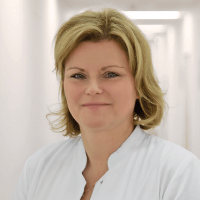




Department of Adult and Pediatric Cardiothoracic Surgery
According to the Focus magazine, the Department of Adult and Pediatric Cardiothoracic Surgery ranks among the top German departments specializing in the surgical treatment of diseases of the cardiovascular system! The department offers the full range of surgical treatment of diseases of the heart, lungs, and other thoracic organs. The department has a long and successful history. It has performed more than 50,000 heart surgeries since 1938. The first open-heart surgery under hypothermia, the first heart valve replacement surgery, as well as the first pacemaker and cardioverter-defibrillator implantations in Germany should be mentioned among the department’s achievements.
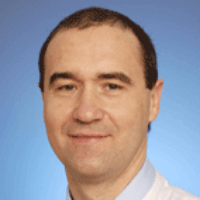





Department of Cardiac Surgery, Adult and Pediatric Thoracic Surgery
According to the Focus magazine, the Department of Cardiac Surgery, Adult and Pediatric Thoracic Surgery ranks among the top German medical facilities specializing in cardiac surgery! The department offers the full range of surgical treatment of diseases of the heart, lungs, thoracic organs, mediastinum and diaphragm, including heart and lung transplantation. With appropriate indications, the operations are performed using sparing minimally invasive techniques. The department's surgeons perform more than 3,000 surgical interventions annually, 200 of them using a heart-lung machine.
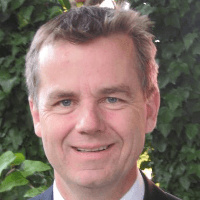





The thymus gland is an organ of the immune system that is located in the mediastinum, behind the sternum. It is especially developed in children, but gradually atrophies and is replaced by adipose tissue in adults.
Thymus tumors are no longer divided into benign and malignant, since even benign neoplasms are dangerous to health and can become malignant. Any neoplasm must be removed. According to the WHO classification, there are 6 types of thymus cancer, ranging from the most prognostically favorable to the most aggressive types. These are as follows: A, AB, B1, B2, B3, and C. The prognosis and success of treatment depend not only on the type of cancer but also on the stage of the disease.
If you suspect thymus cancer, you can undergo your diagnostics and treatment abroad. You are welcome to use the Booking Health website to find the cost of treatment and choose the most suitable medical care program.
Content
- Clinical diagnostics
- Early diagnostics
- Medical imaging methods
- Laboratory diagnostics
- Biopsy
- Where to undergo diagnostics?
Clinical diagnostics
In most cases, thymus cancer does not cause any symptoms in its early stages. They manifest themselves after the thymus tumor reaches a large size and compresses the surrounding organs and tissues, as well as in the case of the development of paraneoplastic syndromes.
The gland is located next to the organs of the respiratory system and large blood vessels. When the organs of the mediastinum are compressed, the following symptoms develop:
- difficulty breathing;
- coughing that occasionally produces blood;
- chest pain;
- dysphagia (difficulty swallowing);
- weight loss.
Common symptoms such as weakness, loss of appetite, and a slight increase in body temperature may also occur. If the thymus compresses the superior vena cava, a person has facial swelling, blue skin, neck vein swelling, headaches, and bouts of dizziness.
Thymus cancer often causes the development of autoimmune diseases. Immunity begins to attack the person's own organs. The main function of the thymus is to control the immune system, and if it is damaged, this process is disrupted.
Two-thirds of patients with thymus cancer suffer from myasthenia gravis. The immune system produces antibodies that block chemical signals in the muscles. As a result, muscle cells do not receive impulses and contract poorly. Clinically, myasthenia gravis is manifested by severe weakness and fatigue. Patients cannot walk long distances and are often unable to climb stairs on their own.
Not only the arm and leg muscles are affected, but also the eye, thorax, and neck muscles. As a result, there are problems with vision, breathing, and swallowing.
Myasthenia gravis is not a syndrome that only occurs in thymus cancer. Benign tumors of the gland can also cause such symptoms. Myasthenia gravis usually resolves after the removal of the gland. Symptoms can be controlled with drugs that suppress autoimmune inflammation and improve neuromuscular transmission.
Other possible manifestations of thymus cancer are as follows:
- in 5% of patients, red cell aplasia is observed, and this condition leads to anemia (high hemoglobin and erythrocyte levels in the blood);
- hypogammaglobulinemia develops in 10% of patients with thymus cancer, and a patient does not have enough antibodies to fight infections;
- systemic autoimmune diseases are often a case for patients with thymus cancer, and they therefore may suffer from systemic lupus erythematosus, rheumatoid arthritis, systemic scleroderma, inflammatory bowel disease, and other autoimmune pathologies.
The presence of these symptoms and diseases is a clue to a doctor that there may be a tumor in the thymus. However, all these symptoms are nonspecific, and most of the syndromes and diseases develop in people who do not have thymus cancer.
Early diagnostics
Any cancer is easier to treat if it is detected on time. Therefore, for some types of cancer, doctors conduct screening, which is a mass examination of an asymptomatic population to detect tumors before symptoms manifest themselves. Thymus cancer, however, is not one of these diseases. This condition is rare, so doctors do not examine everyone in a row for early tumor detection.
In practice, approximately 40% of cases in developed countries are detected before symptoms manifest themselves. The tumor is diagnosed incidentally on a chest X-ray or a CT scan.
In the remaining 60% of patients, a thymus neoplasm can be detected only after the manifestation of symptoms. These are not only signs of compression of the tissues surrounding the thymus, but also the paraneoplastic syndromes described above (myasthenia gravis and others).
Medical imaging methods
Radiation diagnostic research helps doctors to see the tumor. Instrumental examinations can also be used to estimate the prevalence of thymus cancer, clarify the stage of the disease, perform a biopsy, and plan cancer treatment.
A chest X-ray scan is usually the first examination that is prescribed for a patient. The technique allows a patient to clarify the presence of the neoplasm resembling a tumor in the chest. However, some neoplasms are too small to be detected on an X-ray scan. Therefore, if the thymus tumor is not detected but the symptoms persist, a doctor may refer a patient to another, more informative examination.
A computed tomography (CT) scan is an X-ray diagnostic method that creates images of sections of organs and tissues and then creates a 3D model using a graphic station. The method allows doctors to get detailed images of the soft tissues of the body. Should thymus cancer be suspected, the examination will be carried out with the intravenous injection of a contrast agent. If a doctor detects a tumor or metastases, a needle biopsy may be performed under CT guidance. The examination will help to accurately guide the needle in order to obtain samples from the correct place, not to injure important organs of the mediastinum, and to avoid complications.
A magnetic resonance imaging (MRI) scan uses radio waves and strong magnets instead of X-rays. A chest MRI is inferior in accuracy and information content to a CT scan. The technique is therefore used only if there are contraindications to computed tomography or injections of an iodine-containing contrast agent. In addition, an MRI scan can be useful in the search for brain and spinal cord metastases.
A positron emission tomography (PET) scan is another diagnostic option. Doctors inject a special form of radioactive glucose into the body, which accumulates intensively in the areas with high metabolic activity. The areas of radiopharmaceutical accumulation are then determined using a gamma camera. The scans are not as detailed as with CT or MRI imaging tests. Nonetheless, doctors can scan the whole body and detect distant metastases. In addition, PET scans help to distinguish a thymus tumor from another tumor. A PET scan in its pure form is rarely used abroad. Modern hospitals use devices that can simultaneously perform PET and CT (PET/CT scanning). This allows doctors to compare the areas of higher radioactivity on a PET scan with more detailed images of the same part of the body on a CT scan.
Laboratory diagnostics
Laboratory tests help doctors to differentiate between thymus cancer and other conditions, such as a goiter behind the breastbone (enlarged thyroid gland) or a germ cell tumor.
An antibody blood test will be performed if myasthenia gravis is suspected. It helps to distinguish this condition from other diseases that cause muscle weakness.
General clinical tests in patients with an already diagnosed thymus tumor are carried out to assess a general health condition. Tests are taken before the operation for the neoplasm removal, after surgery, and they are also repeated during the treatment of thymus cancer with chemotherapy agents and with the help of radiation therapy.
Biopsy
Most patients do not have a biopsy. Medical imaging techniques provide enough diagnostic information to suggest the presence of cancer with a high probability.
Doctors provide cancer treatment using surgery for the removal of the thymus gland and surrounding tissue. They then send the tissues of the removed gland for a histological examination. The samples are examined in the laboratory under a microscope to determine the type of the tumor. In addition, the results of the operation are evaluated, for example, the presence of cancer cells at the border of the removed tissue or lymph node metastases.
However, if at first it is planned to use not an operation but other methods of treatment, for example, chemotherapy, the diagnostics must be confirmed by laboratory tests. In this case, doctors perform a needle biopsy. They insert a needle into the thorax to obtain tissue samples. The procedure is carried out under CT guidance.
Where to undergo diagnostics?
You can travel abroad to undergo your diagnostics and treatment for thymus cancer in one of the countries offering advanced medicine. On the Booking Health website, you can find the cost of treatment and choose a medical care program.
There are a few reasons for you to undergo your diagnostics abroad. These are as follows:
- the use of state-of-the-art equipment for radiation diagnostics;
- doctors abroad can detect even very small tumors that can be completely removed during the operation;
- a biopsy is performed under CT guidance, which reduces the risk of complications to almost zero;
- doctors accurately assess the stage of the disease, which allows for ideal treatment planning;
- healthcare professionals successfully diagnose not only thymus cancer but also its autoimmune complications to provide timely treatment.
Please leave your request on the Booking Health website and our specialists will help you to select the best hospital for your diagnostics and treatment abroad. The cost of treatment will be lower due to the lack of additional fees for foreign patients. The employees of the Booking Health company will take care of the arrangements for your trip, and you can fully focus on restoring your health.
Authors:
The article was edited by medical experts, board-certified doctors Dr. Nadezhda Ivanisova and Dr. Vadim Zhiliuk. For the treatment of the conditions referred to in the article, you must consult a doctor; the information in the article is not intended for self-medication!
Sources:
Cancer Treatment Centers of America